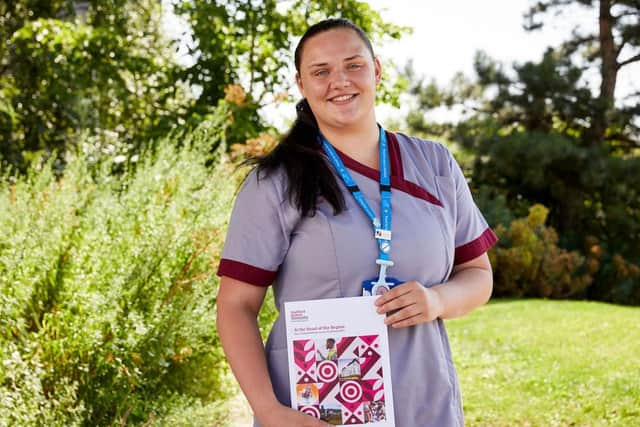Civic University Agreement will improve region's health and wellbeing, says Sheffield Hallam's Dr Toni Schwarz
and live on Freeview channel 276
On average people living in less affluent areas of South Yorkshire have a life expectancy 10 years lower than those from more prosperous areas.
There is an even more pronounced gap of between 20 and 25 years for healthy life expectancy, which is the expected length of time lived with good health. These health inequalities are unacceptable and something that, as a university that is proudly of its region, we want to help address.
Our new Civic University Agreement sets out how the University will go above and beyond to help improve the lives of people living in South Yorkshire.
Tackling the health inequality gap is an important part of our approach, using our research and expertise to work with local communities on their specific health challenges.
Since its launch in early 2020, our world-leading Advanced Wellbeing Research Centre (AWRC) has been at the forefront of research to improve health and wellbeing through innovations that help people move.
Since the pandemic hit, the team at the AWRC have been using their skills to examine the impact of Covid-19 and approaches to rehabilitation from the disease. The team is working closely with local communities, including Darnall Wellbeing in the area the centre is based, to look at the disproportionate impact on different communities. This example of community partnership approach will inform our work with other communities across the region.
The pandemic has had a devastating impact on our NHS and healthcare services – adding huge pressure across the system. Our incredible nurses, doctors and other healthcare professionals have coped with the challenge in exceptionally difficult circumstances. However, we need to educate the next generation of our NHS workforce if it is to continue to provide the excellent level of care we need.
Therefore, another of our new commitments is to double our annual intake of students studying to become healthcare professionals by 2025.
As one of the largest healthcare education providers in the UK, we will expand our healthcare provision to equip the NHS for future challenges and address the chronic shortages in the workforce.
More than 2,700 healthcare students begin their studies at Sheffield Hallam every year, with around half of those coming from the Sheffield area.


Most of our students undertake work placements in the region and go on to work here. By aiming to double our student numbers, we will play a major role in ensuring that local NHS services have enough nurses, midwives, physiotherapists, radiographers, occupational therapists, mental health practitioners and other key professionals, to provide vital care for people across our region.
The Covid-19 pandemic has made the health inequalities that already exist in our region worse. Improving health and wellbeing benefits everyone – the individual, the community, society and the economy.
Through our teaching, research and partnerships, Sheffield Hallam University is well placed to make an even greater contribution to addressing these challenges.
READ MORE: